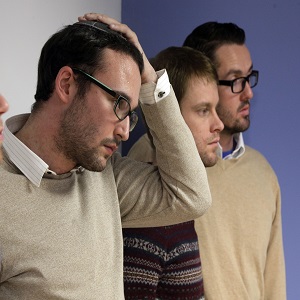A proposal to ban conversion therapy for LGBTQ youth in New Hampshire was defeated in the state legislature on Thursday.
The New Hampshire House Health, Human Services and Elderly Affairs Committee voted down HB 587, one of two bills in the legislature aimed at banning conversion therapy on minors.
Conversion therapy is defined by the American Psychological Association as “counseling and psychotherapy to attempt to eliminate individuals’ sexual desires for members of their own sex.” The activity, which was dismissed as ineffective by the APA in 1997, has drawn criticism in the past decade as an unethical practice.
Currently, nine states and the District of Columbia have adopted laws banning conversion therapy on minors, including neighboring states in New England: Vermont, Connecticut and Rhode Island.
The debate over banning conversion therapy has been ongoing in the Granite State since late 2015, when Rep. Eric Schleien, R-Hillsborough, announced he would introduce legislation to outlaw the activity. While the legislation was passed in the State Senate during the spring of 2016, conservative lawmakers and activists took aim at the proposal, deeming it too far reaching with adverse affects on religious liberty.
The measure did not advance during the 2017 Legislative Session, when the Senate and House bills were retained for further evaluation over the summer. HB 587 was defeated along party lines in Thursday’s vote, though Republicans who opposed the measure said they hope to address the issue of conversion therapy in the future.
Advocates for the LGBTQ community expressed their frustration with the failure to advance the bill out of committee.
Carolyn Reyes, Youth Policy Counsel and Born Perfect Campaign Coordinator for the National Center for Lesbian Rights, told NH Journal she was “disappointed” and “surprised” by the bill’s defeat. Reyes said there has been a bipartisan push by lawmakers nationwide towards banning conversion therapy in recent years. She said the proposed legislation aimed to protect youth, specifically LGBTQ youth, from harm.
“Every major medical and mental health association in the United States has rejected conversion therapy as ineffective and harmful,” Reyes said. “The [American Psychological Association] has linked conversion therapy to depression, substance abuse, and even suicide.”
According to Reyes, one in every three LGBTQ youth have been subjected to conversion therapy. She said conversion therapy serves as an affront to the entire LGBTQ community and seeks to force minors to change their sexual orientation or gender identity. She said her organization aims to promote public awareness of conversion therapy in order to highlight the risks associated with the practice.
Reyes disputed the claim asserted by conservatives who argue a ban on conversion therapy places an undue burden on religious leaders, arguing the law has a narrow definition which only applies to medical professionals licensed in New Hampshire.
The New Hampshire Log Cabin Republicans are a chapter of the national organization which represents gay conservatives. New Hampshire Log Cabin Republican co-chairs Jennifer Horn and Doug Palardy issued a press statement to NH Journal on the issue of conversion therapy and the failed vote on HB 587.
“Sexual orientation is something we are born with. It cannot be ‘fixed’ or ‘repaired,'” the statement read. “The American Academy of Child and Adolescent Psychiatry, the American Academy of Pediatrics, the American College of Physicians, the American Medical Association and the American Psychiatric Association all oppose so-called conversion or reparative therapy because there is no scientific evidence that it is effective, and there is ample evidence that it can sometimes be damaging and traumatic. As such, we do not believe that minors should be subject to this ‘therapy.’ As conservatives and as proud Granite State citizens, we hope that our communities will focus on understanding and accepting the differences with which we are born and find ways to support and encourage those who may struggle with coming to terms with their own sexual orientation.”



